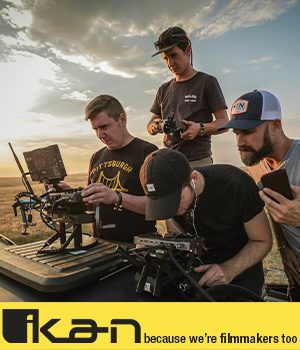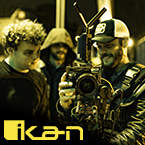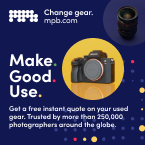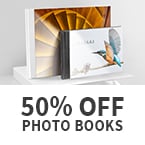- Forum
- General Discussion | Introductions | Off Topic Forum
- Photography General Discussion
- Why do you not shoot in RAW format?
Why do you not shoot in RAW format?
-
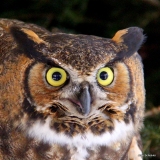
- Baydream
- Moderator
-
- Canoni/60D/70D/5DmkIII
- Followers: 388
- Posts: 11185
-
Points:
7280
Post #110867
Shoot, learn and share. It will make you a better photographer.
fineartamerica.com/profiles/john-g-schickler.html?tab=artwork
-
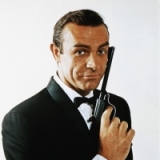
- Scotty
- Agent 007
- James Bond, PT mod.
- Followers: 1088
- Posts: 9888
-
Points:
15096
Post #110948
Baydream wrote: Speed. Photographing sports often requires rapid firing and processing RAW shots will slow your camera. Other times are "snapshots" where perfect exposure,etc. is not critical. RAW also takes up LOTS of memory on your card and your drives.
I concur. Really only sports.
When the last candle has been blown out
and the last glass of champagne has been drunk
All that you are left with are the memories and the images-David Cooke.
-

- KCook
- Photo Elder
-
- Canon EOS 50D and Olympus E-P5
- Followers: 1325
- Posts: 5410
-
Points:
32913
Post #110960
Kelly Cook
-

- Johnnie
- Photography Hooked
-
- Canon 7D, Canon 20D, Fujifilm Finepix S1000fd
- Followers: 146
- Posts: 887
-
Points:
2
Post #110964
-

- Stealthy Ninja
- Moderator
-
- Fuji X stuff and a 1DsIII for some reason
- Followers: 982
- Posts: 16300
-
Points:
6837
Post #110984
-

- KevinA65
- New Kid On The Block
-
- D60-Ir Only/ D5000 / D7000
- Followers: 17
- Posts: 23
-
Points:
0
Post #110985
Johnnie wrote: I photograph in both RAW and JPG. I find that JPG with the correct settings can give wonderful results. Get it right in camera and things will be fine. I shoot Raw for critical shoots where important detail is required.
Agree 100% Raw when needed ( Import. Photos), and Jpeg when just doing a walk and shoot,
-

- Stealthy Ninja
- Moderator
-
- Fuji X stuff and a 1DsIII for some reason
- Followers: 982
- Posts: 16300
-
Points:
6837
Post #110988
KevinA65 wrote:
Johnnie wrote: I photograph in both RAW and JPG. I find that JPG with the correct settings can give wonderful results. Get it right in camera and things will be fine. I shoot Raw for critical shoots where important detail is required.
Agree 100% Raw when needed ( Import. Photos), and Jpeg when just doing a walk and shoot,
I humbly disagree. With modern programs like Lightroom and the price of HDDs coming down and down there's no excuse for shooting jpeg only. Lightroom can be set up to handle your RAW files the way you like them (and does a better job than in camera, the NR and sharpening alone are better and you can use something like a colorchecker passport to do your own profiles for more accurate colour).
When you're doing casual shooting you never know when you'll see something worthy of RAW so to speak (like a sunset or something) so respectfully you should always shoot RAW unless your income depends on you getting the files out fast.
Johnnie didn't say he shoots jpeg only. He shoots RAW+Jpeg... RAW+Jpeg is fine if you want that, but never Jpeg on it's own (if you're serious about photography that is).
-
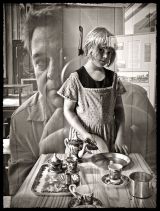
- Henry Peach
- Apprentice
-
- I currently use a 5DII or Sony Nex-3 most of the time.
- Followers: 50
- Posts: 2925
-
Points:
16
Post #111021
The reasons people don't shoot in raw are the same reasons people didn't develop their own film: they don't know how, it's too inconvenient, it takes too long, someone told them it was hard, etc...
Post #111027
-

- KCook
- Photo Elder
-
- Canon EOS 50D and Olympus E-P5
- Followers: 1325
- Posts: 5410
-
Points:
32913
-

- Stealthy Ninja
- Moderator
-
- Fuji X stuff and a 1DsIII for some reason
- Followers: 982
- Posts: 16300
-
Points:
6837
Post #111072
KCook wrote:
It's all a matter of degree. You could just as easily say that anybody shooting with less than 35mm Full Frame is not serious about photography.never Jpeg on it's own (if you're serious about photography that is)
Kelly
Don't mix categories. We're talking a file format that all good cameras can use and isn't that hard to work with. Even my Canon S95 can shoot in RAW.
It's there. If you're serious about photography you should use it (or learn to use it).
Unless of course you have a good reason not to (as stated above).
Free software (if your camera doesn't come with it:
ufraw.sourceforge.net/
Macs have iPhoto which should open RAW.
If not go here and it has some info on how to get it to work (look a few posts down):
discussions.apple.com/thread/2625299?start=0&tstart=0
Post #111093
That was a good point about the proof of ownership.
“Amateurs worry about equipment, professionals worry about money, masters worry about light, I just make pictures… ” ~ Vernon Trent
-

- Henry Peach
- Apprentice
-
- I currently use a 5DII or Sony Nex-3 most of the time.
- Followers: 50
- Posts: 2925
-
Points:
16
Post #111171
KCook wrote:
It's all a matter of degree. You could just as easily say that anybody shooting with less than 35mm Full Frame is not serious about photography.never Jpeg on it's own (if you're serious about photography that is)
Jpegs are like slides: what comes out of the camera is pretty much done cooking.
Raw are like negs: there are still plenty of processing options before the photo is finished.
They used to say "serious photographers shoot slides." Of course this was just as much BS as serious photographers shoot raw.
-

- Baydream
- Moderator
-
- Canoni/60D/70D/5DmkIII
- Followers: 388
- Posts: 11185
-
Points:
7280
Post #111181
It is a different subject but an excellent analogy. You can be serious about photography and not shoot RAW all the time.Stealthy Ninja wrote:
KCook wrote:
It's all a matter of degree. You could just as easily say that anybody shooting with less than 35mm Full Frame is not serious about photography.never Jpeg on it's own (if you're serious about photography that is)
Kelly
Don't mix categories. We're talking a file format that all good cameras can use and isn't that hard to work with. Even my Canon S95 can shoot in RAW.
It's there. If you're serious about photography you should use it (or learn to use it).
Unless of course you have a good reason not to (as stated above).
Free software (if your camera doesn't come with it:
ufraw.sourceforge.net/
Macs have iPhoto which should open RAW.
If not go here and it has some info on how to get it to work (look a few posts down):
discussions.apple.com/thread/2625299?start=0&tstart=0
Shoot, learn and share. It will make you a better photographer.
fineartamerica.com/profiles/john-g-schickler.html?tab=artwork
- Forum
- General Discussion | Introductions | Off Topic Forum
- Photography General Discussion
- Why do you not shoot in RAW format?
Latest Reviews
The Olympus Pen E-P7 is an affordable micro four thirds mirrorless camera with 4K video capabilities, a 20.3MP sensor, and 121 focus points, making it a solid entry-level camera for beginners.
The Panasonic G9 II is a 25.2-megapixel micro four thirds camera with numerous features that make it punch out of its weight class, like 779 AF points, 5.8K video, and weather sealing.
The Fujifilm XT5 is a 40MP mirrorless camera capable of 6.2K video at 30p. With those specs, it’s an ideal choice for photographers needing a camera to pull double duty for imaging and video.
The Canon EOS R100 is an entry-level mirrorless camera introduced in 2023. But just because it’s an entry-level camera doesn’t mean it’s a bare-bones camera. Find out why in this review!
Forum Top Posters
-
1Scotty 9 posts
-
2Roman Omell 4 posts
-
3Razky 4 posts
-
4Pat White 3 posts
-
5CharleyL 3 posts
-
6ShutterPal 3 posts
-
7Ruby Grace 3 posts
-
8Roger Lang 3 posts
-
9Nefarious 3 posts
-
10Jim Photo 3 posts
Latest Articles
Upgrade your kit in 2024 with the best intermediate camera on the market! The question is, what camera fits the bill? We’ve got three top options for you to choose from in this buyer’s guide.
The best photography jobs right now are a mix of tried-and-true gigs like wedding photography and new jobs highlighting AI’s capabilities, travel, and videography.
The Olympus Pen E-P7 is an affordable micro four thirds mirrorless camera with 4K video capabilities, a 20.3MP sensor, and 121 focus points, making it a solid entry-level camera for beginners.
Starting a photography business is one thing; sustaining your business over a long period of time is another. Use the tips in this professional photography guide to build something with longevity!
The Panasonic G9 II is a 25.2-megapixel micro four thirds camera with numerous features that make it punch out of its weight class, like 779 AF points, 5.8K video, and weather sealing.
Cinematic photography is an interesting genre that combines photographic and videographic skills along with effective storytelling techniques. The result? Highly impactful images!
Newborn photography requires skill, the right gear, and a lot of patience. This beginner’s guide discusses critical topics that will help you be more prepared for before, during, and after the shoot.
To fill the frame means to expand the footprint of the subject in your shot. Get in close, zoom in, crop the image, or use other techniques to bring the subject to the forefront.












